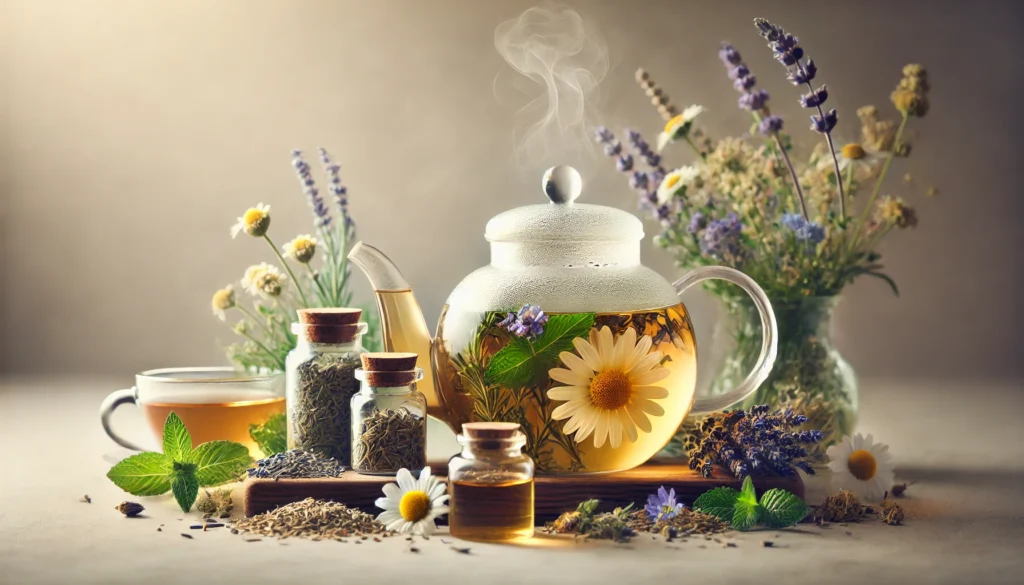Social anxiety can be a debilitating condition. It can hinder personal relationships, career growth, and overall quality of life.
But what if there were natural remedies to help manage it?
This article explores the possibility of curing social anxiety naturally. It delves into the science behind social anxiety, the role of neurotransmitters, and the fight-or-flight response.
We’ll also discuss the importance of a holistic approach to managing this condition. This includes mindfulness techniques, dietary changes, and practical strategies that can be implemented at home.
The goal is to empower you with knowledge and tools. These can help you navigate social situations with more confidence and less anxiety.
Whether you’re a fitness enthusiast, a health enthusiast, or a medical patient, this guide is designed to be accessible and practical. It’s based on scientific research, translated into actionable advice.
So, can social anxiety be cured naturally? Let’s find out.
You may also like: Top Supplements to Alleviate Anxiety Naturally

Understanding Social Anxiety
Social anxiety is more than just feeling nervous in social settings. It’s an intense fear of being judged or embarrassed. It can occur in everyday interactions, such as meeting new people or speaking in groups.
Some people mistake social anxiety for mere shyness, but the two are different. Shyness is a personality trait, while social anxiety is a mental health condition.
The difference lies in the intensity and impact on daily life. Social anxiety can prevent someone from engaging in normal activities. This can lead to avoidance and isolation, affecting relationships and self-esteem.
Recognizing these symptoms is crucial for understanding and managing the condition. Addressing social anxiety requires acknowledging its roots and manifestations.
Common symptoms include rapid heart rate, sweating, trembling, and difficulty speaking. People with this anxiety may fear judgment or rejection.
They often experience anticipatory anxiety, worrying about upcoming events. This can lead to avoidance behaviors, limiting social interactions.
Defining Social Anxiety and Its Symptoms
Social anxiety disorder, or SAD, involves an intense fear of social situations. This fear often feels overwhelming and uncontrollable.
Physical symptoms can include blushing, shaking, nausea, or a pounding heart. These responses make the affected person feel self-conscious.
The condition can lead to avoiding the spotlight at all costs. People may steer clear of places and activities they previously enjoyed.
Emotional symptoms include dread, fear, and worry about social events. These feelings can be persistent and pervasive.
Mentally, individuals might replay social interactions over and over again. They often critique their performance with harsh self-judgment.
Understanding these symptoms is the first step toward effective management. It’s important to validate these feelings and seek help.
The Prevalence and Impact of Social Anxiety
Social anxiety disorder affects many people worldwide. It is among the most common anxiety disorders. Studies suggest that about 7% of the population are affected by it.
SAD often begins in the early teen years and can persist into adulthood. Without intervention, it may lead to more severe mental health issues.
The impact on daily life can be profound and far-reaching. Relationships, education, and career prospects can all suffer.
People with social anxiety may miss out on important opportunities. Fear of judgment can stifle both personal and professional growth.
However, understanding its prevalence can offer some comfort. Realizing you’re not alone can be a powerful motivator.
By shedding light on the impact and prevalence, we can remove the stigma. In doing so, we open doors for conversation and healing.
The Science Behind Social Anxiety
Understanding the science behind social anxiety can demystify the condition. At its core, anxiety involves both brain chemistry and bodily responses. Key players in this process are neurotransmitters, which are chemicals in the brain.
Neurotransmitters such as serotonin and dopamine are crucial for mood regulation. Imbalances in these chemicals can contribute to anxiety. This connection points to the need for strategies that target brain chemistry.
The body’s fight-or-flight response also plays a significant role. This is the body’s natural reaction to perceived threats. In social anxiety, this response can become activated in non-threatening situations.
When faced with social scenarios, the body can react as if in danger. Symptoms like increased heart rate and sweating are common results. Understanding these reactions helps us find ways to calm the system.
Here’s where we see the importance of a comprehensive approach:
- Balancing neurotransmitters naturally
- Managing the fight-or-flight response
- Incorporating lifestyle changes for stability
Research points to the potential of natural remedies in modulating these processes. This includes methods that support neurotransmitter function and regulate bodily responses.
Neurotransmitters and the Fight-or-Flight Response
Neurotransmitters are chemical messengers in the brain. They influence mood, emotion, and anxiety levels. When these messengers are out of balance, anxiety can increase.
Serotonin, known as the “feel-good” neurotransmitter, plays a key role. Low levels are often linked to increased anxiety and mood disorders. Boosting serotonin naturally through diet or exercise can be beneficial.
The fight-or-flight response, on the other hand, is an evolutionary survival mechanism. It prepares the body to react quickly in the face of danger. This response can be excessive in social anxiety, causing distress in normal situations.
Techniques like mindfulness and meditation can help manage this response. They promote relaxation and reduce the physiological symptoms of anxiety. Addressing both neurotransmitter imbalances and stress responses can form a solid foundation for relief.
The Holistic Approach to Anxiety Management
A holistic approach to anxiety considers the whole person. It goes beyond merely treating symptoms to addressing root causes. This includes looking at diet, exercise, sleep, and mental health.
Nutrition plays a vital role in regulating mood and anxiety. A balanced diet supports neurotransmitter production and function. Foods rich in omega-3s and vitamins are particularly beneficial.
Physical activity is another essential component. Regular exercise releases endorphins, improving mood and reducing stress. It also helps regulate sleep patterns, contributing to overall well-being.
Incorporating these elements into daily life can significantly impact anxiety levels. Holistic strategies also often involve stress management techniques. This might include yoga, meditation, or deep-breathing exercises.
By integrating these practices, individuals can create a balanced lifestyle. This approach not only alleviates symptoms but also promotes resilience. Ultimately, a holistic plan is personalized, addressing specific needs and preferences.

Natural Remedies for Social Anxiety
Natural remedies offer promising avenues for those seeking relief from social anxiety. These methods focus on integrating
Practical Strategies for Anxiety Relief at Home
Social anxiety can feel overwhelming, especially at home where many find solace. However, the home environment can be an excellent space to practice anxiety relief strategies. Let’s explore some effective methods to incorporate into your daily routine.
Breathing Exercises and Physical Activity
Controlled breathing exercises can quickly reduce anxiety symptoms. These exercises help reset your body’s stress response. Practice the 4-7-8 technique: inhale for 4 seconds, hold for 7, and exhale for 8.
Physical activity also plays a significant role in managing anxiety. Regular exercise releases endorphins, which boost mood and reduce stress. Even a brisk 20-minute walk can make a difference.
Consider integrating both aerobic and anaerobic exercises into your week. This can include activities like jogging, yoga, or weight training.
Benefits of these activities include:
- Enhanced mood and stress reduction
- Improved cardiovascular health
- Better sleep and concentration
Sleep, Aromatherapy, and Herbal Remedies
Adequate sleep is vital for anxiety management. Establish a consistent sleep schedule to enhance sleep quality. Aim for 7 to 9 hours of restful sleep each night.
Aromatherapy is another powerful tool for anxiety relief at home. Essential oils like lavender and chamomile promote relaxation. Diffuse them in the evening to create a calming environment.
Herbal remedies also provide natural anxiety relief. Consider herbs like Ashwagandha, known for its calming effects. Chamomile tea is another popular choice for evening relaxation.
Remember to approach these remedies wisely, considering:
- Potential interactions with medications
- Individual allergies or sensitivities
- Consultation with a healthcare provider if necessary
Incorporating these natural remedies and strategies can empower you to manage social anxiety effectively from the comfort of home. Over time, you may notice reduced anxiety levels and improved overall wellbeing.
Cognitive and Behavioral Coping Strategies
Cognitive and behavioral strategies are pivotal in managing social anxiety. These approaches focus on altering thoughts and behaviors that trigger anxiety. By restructuring negative thoughts and encouraging new habits, these strategies can empower individuals to navigate social settings with ease.
Cognitive Restructuring and Exposure Therapy
Cognitive restructuring involves identifying and challenging negative thought patterns. This method aims to replace unhelpful thoughts with more balanced views. By changing how you perceive social interactions, you can reduce anxiety.
Exposure therapy is another effective approach. Gradual exposure to feared social situations helps desensitize anxiety responses. Start with less intimidating scenarios and slowly work up to more challenging ones.
Both techniques are often used together for better results. Regular practice of cognitive restructuring and exposure can decrease the intensity of social anxiety over time.
Building Confidence and Social Skills
Confidence is key in overcoming social anxiety. Building self-esteem can make social interactions less daunting. Start by setting small, achievable goals to boost self-assurance.
Enhancing social skills is also crucial. Practice active listening and assertive communication. These skills improve interactions and reduce anxiety.
Consider joining a group or class to practice in a supportive environment. This provides real-life opportunities to build skills while receiving feedback and encouragement.
These strategies not only help in managing anxiety but also enhance overall personal development. With patience and practice, individuals can build a more confident and socially active life.
When to Seek Professional Help
While natural remedies can be helpful, sometimes professional guidance is necessary. It’s important to know when to seek help from a mental health professional. If social anxiety severely disrupts daily activities or causes significant distress, it’s time to consider professional treatment.
Therapists can provide tailored strategies, such as Cognitive Behavioral Therapy (CBT), to address specific needs. A mental health professional can offer insights and support that are not easily available through self-help methods. Remember, seeking professional help is a proactive step towards improving mental health and managing social anxiety effectively.

Creating Your Personalized Anxiety Management Plan
Crafting a personalized anxiety management plan involves understanding your unique triggers and responses. Everyone experiences social anxiety differently, so a tailored approach can enhance effectiveness. Begin by identifying specific situations or thoughts that exacerbate your social anxiety.
Once you have identified these triggers, compile a list of coping strategies that resonate with you. These might include mindfulness exercises, dietary changes, or engaging in physical activities. Aim to incorporate a variety of approaches to create a well-rounded plan.
It’s also crucial to set realistic goals and timelines for implementing these strategies. Break tasks into smaller, manageable steps to avoid feeling overwhelmed. Celebrate small victories to stay motivated and acknowledge progress, no matter how minor it seems.
Here’s a simple guide to start your personalized plan:
- Identify triggers: Note situations that cause anxiety.
- List strategies: Choose techniques that feel right for you.
- Set goals: Define what you want to achieve.
- Track progress: Regularly review and adjust your plan.
- Celebrate successes: Recognize achievements, however small.
Adapting the plan as you learn what works best for you is essential. Be patient with yourself and allow room for growth. Over time, this personalized approach can become a powerful tool in managing social anxiety.
Conclusion: Embracing the Journey to Overcome Social Anxiety
Embarking on the journey to overcome social anxiety is a profound step toward personal empowerment. Remember that progress may be gradual, and that’s perfectly okay. The path to managing social anxiety naturally involves patience, persistence, and self-compassion.
Integrating natural remedies, mindfulness practices, and lifestyle changes can lead to significant improvements. However, each individual’s journey is unique. What works for one person may not work for another, so it’s vital to stay open to adjustments as needed.
Embrace the small victories along the way as they reflect your dedication and resilience. Celebrate these accomplishments, recognizing them as steps towards greater confidence and peace. In time, these efforts will culminate in a noticeable shift in how you experience social situations. By remaining committed to understanding and nurturing yourself, you open the door to a more fulfilling, anxiety-managed life.
Further Reading:
Mayo Clinic: Herbal treatment for anxiety: Is it effective?
Medical News Today: Treating anxiety without medication
Healthline: Ready to Overcome Social Anxiety? These 8 Tips Can Help
Important Note: The information contained in this article is for general informational purposes only, and should not be construed as health or medical advice, nor is it intended to diagnose, prevent, treat, or cure any disease or health condition. Before embarking on any diet, fitness regimen, or program of nutritional supplementation, it is advisable to consult your healthcare professional in order to determine its safety and probable efficacy in terms of your individual state of health.
Regarding Nutritional Supplements Or Other Non-Prescription Health Products: If any nutritional supplements or other non-prescription health products are mentioned in the foregoing article, any claims or statements made about them have not been evaluated by the U.S. Food and Drug Administration, and such nutritional supplements or other health products are not intended to diagnose, treat, cure, or prevent any disease.


